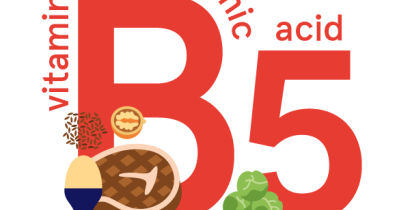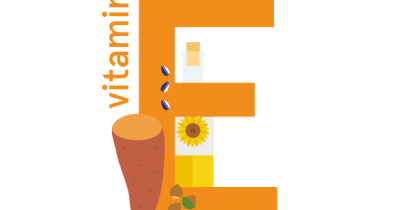Folate: foods, functions, how much do you need & more
Last Updated : 11 January 2021Folate and pregnancy go hand in hand. This vitamin – also referred to as folic acid – is a key player in the healthy development of the baby.
What is folate?
Folate is the generic name used for a group of water-soluble compounds that belong to the family of B-vitamins.
Folate and folic acid are often used interchangeably, but they’re actually two different forms of the same vitamin. Folate is the natural form of the vitamin found in foods and in the body; while folic acid is its synthetic form, used in supplements or fortified foods. Our bodies absorb folic acid from fortified foods or supplements significantly better than folate from foods.
What are the functions of folate?
Folate is needed to help our cells grow and multiply, which makes it a key vitamin in periods of rapid growth and development, such as pregnancy and infancy. Folate is particularly important to help develop the baby’s skull and spinal cord, which is why low levels of this vitamin, before and during pregnancy, can lead severe birth defects, called neural tube defects.
Folate and vitamin B12 share many functions in the body. For example, they both work together to create our genetic material (DNA), form healthy red blood cells and support the normal functioning of our brain and nervous system. Both vitamins, alongside vitamin B6, also collaborate in the breaking down of homocysteine, an amino acid that can put us at higher risk of cardiovascular disease, when present in high amounts.

How much folate do I need per day?
How much folate you need per day changes according to your age, sex and life-stage.
Folate recommendations are measured in μg of folate equivalents (DFE), a unit that takes into account the fact that we absorb folic acid better than folate from foods.
|
1 μg of DFE is equivalent to: |
1 μg of folate from foods |
|
0.6 μg of folic acid from fortified foods |
|
|
0.6 μg folic acid supplement taken with food |
|
|
0.5 μg folic acid supplement taken on an empty stomach |
The dietary reference value (DRV)* for healthy adults (over the age of 18) is 330 μg DFE per day. During pregnancy and lactation, needs can go up to 600 μg and 500 μg DFE per day, respectively.
Following your country's dietary guidelines on a healthy and balanced diet will help you meet your needs for folate. However, those who wish to become pregnant are advised to take 400 μg of folic acid daily from fortified foods, supplements, or both, starting up to a month prior to conception, to lower the risk of neural tube defects in the baby.

* These values are based on the adequate intake (AI) and population reference intakes (PRI) estimates from the European Food Safety Authority (EFSA). They should not be interpreted as nutrient goals. To know more about DRVs in Europe click here.
What foods contain folate?
We can find folate in small amounts in a variety of foods, but some of its richest sources include:
- dark green vegetables,
- legumes
- orange and grapefruit juice
- peanuts and almonds.
Meat is usually low in folate, but kidney and liver are two good animal sources of this vitamin.
In some countries, folic acid is added to foods, which helps people get more of this vitamin by eating grain and cereal products (such as bread and breakfast cereals) and some fat spreads.

Does folate interact with other nutrients?
Folate and vitamin B12 share many important tasks in the body, which support the healthy function of our cells and the nervous system. If we don’t get enough folate or vitamin B12 for a long period, their common functions become compromised and our health can be affected in the long-term.
Besides, folate (together with vitamin B12 and vitamin B6) and choline help our bodies break down an excess of homocysteine, through two different processes. Meeting the recommended amounts for these micronutrients is important to help our bodies maintain safe levels of homocysteine, which can put us at higher risk of cardiovascular disease, when present in high amounts. In some cases, mainly affecting people with a genetic predisposition, low levels of folate could make our bodies compensate by using more choline in this process.
What happens if I have too little folate?
Folate deficiency is not common in healthy adults with a healthy and balanced diet. Nevertheless, it can affect people who have higher needs for this vitamin, or those with specific health conditions that impair the absorption of nutrients by our bodies (such as celiac disease, inflammatory bowel disease or chronic alcohol abuse). It can also affect people who have a specific mutation in the MTHFR gene, which prevents the body from converting folate to its active (functional) form.
Folate deficiency is particularly harmful during the early stages of pregnancy as it increases the risk of pregnancy complications. For example, low levels of folate before or during pregnancy increase the risk of babies having neural tube defects (NTDs), such as spina bifida, which are severe malformations of the spinal cord and brain.
Folate deficiency can cause us to become irritable and forgetful. In the long-term, it can lead to megaloblastic anaemia, a disease that causes our bodies to form unusually large red blood cells in lower amounts. The few misshaped red blood cells then have difficulties delivering enough oxygen around the body, leading to constant fatigue and shortness of breath. This condition can also be caused by vitamin B12 deficiency.
What happens if I have too much folate?
It is highly unlikely to get harmful amounts of folate through foods alone. Even if we exceed our daily needs, our bodies remove the folate surplus through urine.
Nevertheless, adults are advised not to have more than 1 mg of folic acid (from fortified foods or supplementation) per day.
Supplementation of folic acid is not harmful per se, but it can mask the symptoms of vitamin B12 deficiency (if there’s one) which if it’s not diagnosed in time, can cause serious harm to the function of our nervous system.
Before taking folate supplements, check with your doctor or a registered dietitian/nutritionist or consult your national dietary guidelines.
When should I pay extra attention to a folate deficiency?
People who are, or want to become pregnant, need to pay extra attention to their folate intake, as their needs for this vitamin are higher to support a healthy pregnancy. Up to a month before pregnancy, it’s advised to have 400 μg of folic acid per day from supplements, fortified foods, or both on top of a healthy diet.
If you are or want to become pregnant, make sure to get professional advice on folic acid supplementation or consult your national dietary guidelines.
References
- European Food Safety Authority. 2014. Scientific Opinion on Dietary Reference Values for folate. EFSA Journal 2014;12(11):3893
- World Health Organization (WHO). 2004. Vitamin and mineral requirements in human nutrition. 2nd edition. Geneva, Switzerland: WHO.
- Public Health England. 2019. McCance and Widdowson’s Composition of Foods Integrated Dataset.



